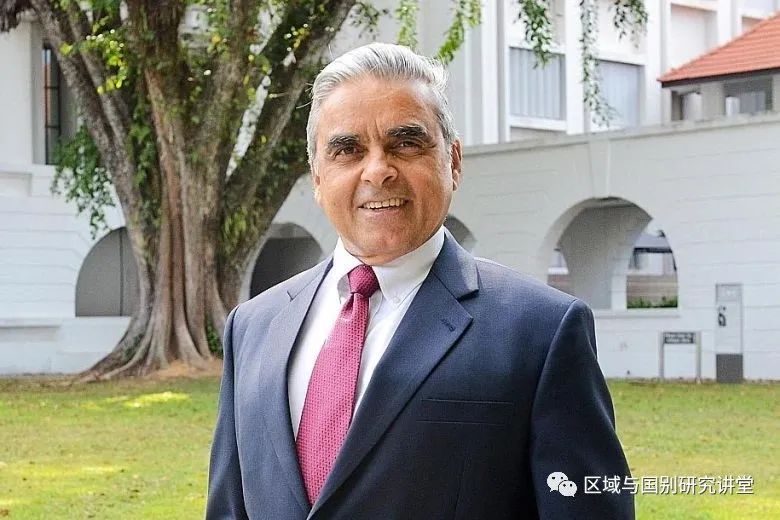诺贝尔经济奖得主分析冠状病毒大流行后世界经济会怎么样?
By Joseph E. Stiglitz, Robert J. Shiller, Gita Gopinath, Carmen M. Reinhart, AdamPosen, Eswar Prasad, AdamTooze, Laura D’Andrea Tyson, Kishore Mahbubani
新冠病毒大流行病或将永远改变经济和金融秩序,为了预测病毒对经济的影响,美国《外交事务》杂志邀请了9位全球顶级思想家,分享他们的预测与判断。这九位思想家有诺贝尔经济学获奖者、知名大学教授、国际货币基金首席经济学家、著名智库专家、前美国政府高官等,他们的分享无疑将帮助我们在这个动荡的局势里克服恐惧、增强定力。为了方便读者阅读,又保持原汁原味,我们采取了中英版同时呈现给大家。
After many weeks of lockdowns, tragic loss of life, and the shuttering ofmuch of the global economy, radical uncertainty is still the best way todescribe this historical moment. Will businesses reopen and jobs come back?Will we travel again? Will the flood of money from central banks andgovernments be enough to prevent a deep and lasting recession, or worse?
在经历了数周的封锁、悲惨的死亡和全球经济关闭之后,描述这一历史时刻的最佳方式就是彻底的不确定性。企业会重新开张吗?就业岗位会回来吗?我们还会去旅行吗?来自中央银行和政府的大量资金是否足以防止严重而持久的衰退,或者更糟?
This much is certain: The pandemic will lead to permanent shifts inpolitical and economic power in ways that will become apparent only later. To helpus make sense of the ground shifting beneath our feet, Foreign Policyasked nine leading thinkers, including two Nobel-Prize-winning economists, toweigh in with their predictions for the economic and financial order after thepandemic.
可以肯定的一点是:这一流行病将导致政治和经济权力的永久性转移,其方式将在以后才会变得明显。为了帮助我们理解这一翻天覆地的变化,《外交政策》杂志邀请九位顶级思想家,包括两位诺贝尔经济学奖得主,参与他们对大流行病后经济和金融秩序的预测。
We Need a Better BalanceBetween Globalization and Self-Reliance
我们需要在全球化和自力更生之间取得更好的平衡
by Joseph E. Stiglitz
Joseph E. Stiglitz is a professor ofeconomics at Columbia University, winner of the 2001 Nobel Memorial Prize ineconomics, and the author of People, Power, and Profits: ProgressiveCapitalism for an Age of Discontent, published in paperback in April2020. Twitter: @JosephEStiglitz
约瑟夫·E·斯蒂格利茨是哥伦比亚大学经济学教授,2001年诺贝尔经济学奖获得者,《人民、权力和利润:不满时代的进步资本主义》一书作者,该书于2020年4月以平装本出版。推特:@JosephEStiglitz

Economists used to scoff at calls for countries to pursue food or energysecurity policies. In a globalized world where borders don’t matter, theyargued, we could always turn to other countries if something happened in ourown. Now, borders suddenly do matter, as countries hold on tightly to facemasks and medical equipment, and struggle to source supplies. The coronaviruscrisis has been a powerful reminder that the basic political and economic unitis still the nation-state.
经济学家过去常常嘲笑各国推行粮食或能源安全政策的呼吁。他们认为在边界不再重要的全球化世界里,如果我们自己发生了什么事情,总是可以求助于其他国家。现在,边境突然变得重要起来,因为各国紧紧地抓着口罩和医疗设备不放,很难找到供应来源。冠状病毒危机强烈地提醒人们,基本的政治和经济单位仍然是民族国家。
To build our seemingly efficient supply chains, we searched the world overfor the lowest-cost producer of every link in the chain. But we wereshort-sighted, constructing a system that is plainly not resilient,insufficiently diversified, and vulnerable to interruptions. Just-in-timeproduction and distribution, with low or no inventories, may be capable enoughof absorbing small problems, but we have now seen the system crushed by anunexpected disturbance.
为了建立看似高效的供应链,我们在世界各地寻找供应链中每个环节成本最低的生产商。但我们目光短浅,构建了一个显然缺乏弹性、不够多样化、容易受到干扰的体系。及时的生产和分配,低库存或无库存,可能足够解决小问题,但我们现在已经看到系统被意外的干扰所摧毁。
We should have learned the lesson of resilience from the 2008 financialcrisis. We had created an interconnected financial system that seemed efficientand was perhaps good at absorbing small shocks, but it was systemicallyfragile. If not for massive government bailouts, the system would havecollapsed as the real estate bubble popped. Evidently, that lesson went rightover our heads. The economic system we construct after this pandemic will haveto be less shortsighted, more resilient, and more sensitive to the fact thateconomic globalization has far outpaced political globalization. So long asthis is the case, countries will have to strive for a better balance betweentaking advantage of globalization and a necessary degree of self-reliance.
我们应该从2008年金融危机中汲取关于经济弹性的教训。我们创造了一个看似高效、或许能够很好地应对小冲击的相互关联的金融体系,但是,从系统性来看,它是脆弱的。如果没有大规模的政府救助,随着房地产泡沫的破裂,这个体系就会崩溃。很明显,我们完全理解了这一教训。在这场大流行病后,我们所构建的经济体系必须不那么短视,更有弹性,对经济全球化远远超过政治全球化这一事实更加敏感。只要世界仍是这种情况,各国就必须在利用全球化和必要程度的自力更生之间取得更好的平衡。
This Wartime Atmosphere HasOpened a Window for Change
战时氛围为变革打开了一扇窗
by Robert J. Shiller
Robert J. Shiller is a professor ofeconomics at Yale University, winner of the 2013 Nobel Memorial Prize ineconomics, and the author of Narrative Economics: How Stories Go Viral andDrive Major Economic Events. Twitter: @RobertJShiller
罗伯特·J·希勒是耶鲁大学经济学教授,2013年诺贝尔经济学奖获得者,《叙事经济学:故事如何传播并推动重大经济事件》一书的作者。推特:@RobertJShiller

There are fundamental changes that happen from time to time—often duringtimes of war. Though the enemy is now a virus and not a foreign power, the COVID-19pandemic has created a wartime atmosphere in which such changes suddenly seempossible.
根本性的变化不时发生--通常是在战争时期。尽管我们的敌人现在是病毒,而不是外国势力,但新冠肺炎大流行创造了一种战时氛围,在这种氛围中,这一变化突然成为可能。
This atmosphere, with narratives of both suffering and heroism, isspreading with the disease. Wartime brings people together not only within acountry, but also between countries, as they share a common enemy like thevirus. Those who live in advanced countries can feel more sympathy with thosesuffering in poor countries because they are sharing a similar experience. Theepidemic is also bringing us together in countless Zoom get-togethers. Suddenlythe world seems smaller and more intimate.
这种充满苦难和英雄主义的氛围随着疾病蔓延。战争不仅使一个国家的人民团结在一起,而且使不同国家的人民团结在一起,因为他们有一个共同的敌人,如病毒。生活在发达国家的人能够对贫穷国家的人感到更多的同情,因为他们有着相似的经历。传染病也让我们在无数的Zoom会议中走到了一起。突然间世界变得更小更亲密了。
There is also reason to hope that the pandemic has opened a window tocreating new ways and institutions to deal with the suffering, including moreeffective measures to stop the trend toward greater inequality. Perhaps the emergencypayments to individuals that many governments have made are a path to auniversal basic income. In the United States, better and more universal healthinsurance might just have been given new impetus. Since we are all on the sameside in this war, we may now find the motivation to build new internationalinstitutions allowing better risk-sharing among countries. The wartimeatmosphere will fade again, but these new institutions would persist.
我们也有理由希望,大流行病为创建新的方法和机构来应对苦难打开了一扇窗,包括采取更有效的措施来阻止不平等性加剧的趋势。也许各国政府向个人支付的紧急款是通往普遍基本收入的道路。在美国,更好更普遍的医疗保险可能刚刚获得了新的动力。由于我们在这场战争中都站在同一边,我们现在能有动力建立新的国际机构,使各国能够更好地分担风险。战争氛围将再次消失,但这些新机构将继续存在。
The Real Risk Is PoliticiansExploiting Our Fears
真正的风险是政客利用我们的恐惧
by Gita Gopinath
Gita Gopinath is the chiefeconomist of the International Monetary Fund.
吉塔·戈皮纳斯是国际货币基金组织的首席经济学家。

Over only a few weeks, a dramatic chain of events—tragic loss of life,paralyzed global supply chains, interrupted shipments of medical suppliesbetween allies, and the deepest global economic contraction since the 1930s—haslaid bare the vulnerabilities of open borders.
短短几周内,一系列戏剧性事件--悲剧性的死亡、全球供应链瘫痪、盟国之间的医疗物资运输中断,以及20世纪30年代以来最严重的全球经济收缩--暴露了开放边界的脆弱性。
If support for an integrated global economy was already declining beforeCOVID-19 struck, the pandemic will likely hasten the reassessment ofglobalization’s costs and benefits. Firms that are part of global supply chainshave witnessed firsthand the risks inherent in their interdependencies and thelarge losses caused by disruption. In future, these firms are likely to take greateraccount of tail risks, resulting in supply chains that are more local androbust—but less global. In emerging markets, whose embrace of globalizationincluded a steady opening to capital flows, we risk seeing capital controlsbeing reimposed as these countries scramble to shield themselves from thedestabilizing forces of the sudden economic stop. And even as containmentmeasures gradually come off worldwide, people may self-assess their individualrisks and decide to curtail travel indefinitely, reversing half a century ofrising international mobility.
如果在新冠肺炎袭击之前,对全球经济一体化的支持已经下降,那么这一流行病很可能会加速重新评估全球化的成本和收益。作为全球供应链一部分的企业已经亲眼目睹了相互依赖固有的风险以及由中断所造成的巨大损失。未来,这些公司可能会更多地考虑尾部风险,致力于更加本地化和强健的供应链-但全球化程度较低。新兴市场拥抱全球化包括对资本流动的稳步开放,随着这些国家争相保护自己不受经济突然停止所带来的不稳定力量的影响,我们可能会看到他们重新实施资本管制。即使遏制措施逐渐在全球范围内实施,人们也可能会自我评估自身的风险,并决定无限期地减少旅行,从而扭转半个世纪来国际流动性不断上升的局面。
The real risk, however, is that this organic and self-interested shiftaway from globalization by people and firms will be compounded by somepolicymakers who exploit fears over open borders. They could imposeprotectionist restrictions on trade under the guise of self-sufficiency andrestrict the movement of people under the pretext of public health. It is nowin the hands of global leaders to avert this outcome and to retain the spiritof international unity that has collectively sustained us for more than 50years.
然而,真正的风险在于,随着人们和企业对全球化趋势的有机和自利的偏离,一些政策制定者会利用人们对开放边界的担忧。他们可以以自给自足为借口对贸易实行保护主义限制,并以公共卫生为借口限制人员流动。现在是全球领导人来避免出现这一结果,并保持50多年来支撑我们的国际团结精神的时候了。
Another Nail in the Coffin ofGlobalization
全球化棺材里的另一颗钉子
by Carmen M. Reinhart
Carmen M. Reinhart is a professor ofinternational finance at the Harvard Kennedy School and the author, withKenneth S. Rogoff, of This Time Is Different: Eight Centuries of FinancialFolly.
卡门·M·莱因哈特是哈佛大学肯尼迪学院国际金融教授,与肯尼斯·S·罗格夫合著《这次不一样:八个世纪以来的金融愚蠢》一书。

World War I and the global economic depression in the early 1930s usheredin the demise of a previous era of globalization. Apart from a resurgence oftrade barriers and capital controls, an important explanation for this demiseis the fact that more than 40 percent of all countries at the time entereddefault, cutting many of them off from the global capital markets until the1950s or much later. By the time World War II ended, the new Bretton Woodssystem combined domestic financial repression with extensive controls ofcapital flows, with little resemblance to the preceding era of global trade andfinance.
第一次世界大战和1930年的全球经济萧条导致了前一个全球化时代的终结。除了贸易壁垒和资本管制的死灰复燃,一个重要的解释是,当时超过40%的国家出现了违约,其中许多国家直到20世纪50年代或更晚才从全球资本市场退出。二战结束时,新的布雷顿森林体系将国内金融抑制与对资本流动的广泛控制结合起来,与前一个全球贸易和金融时代几乎没有什么相似之处。
The modern globalization cycle has faced a series of blows since thefinancial crisis of 2008-2009: a European debt crisis, Brexit, and theU.S.-China trade war. The rise of populism in many countries further tilts thebalance toward home bias.
自2008-2009年金融危机以来,现代全球化周期面临着一系列打击:欧洲债务危机、英国脱欧和美中贸易战。民粹主义在许多国家的兴起进一步将天平向本土倾斜。
The coronavirus pandemic is the first crisis since the 1930s to engulfboth advanced and developing economies. Their recessions may be deep and long.As in the 1930s, sovereign defaults will likely spike. Calls to restrict tradeand capital flows find fertile soil in bad times.
冠状病毒大流行是1930年以来第一次席卷发达和发展中经济体的危机。他们的衰退可能既深重又漫长。与上个世纪30年代一样,主权违约可能会激增。要求限制贸易和资本流动的呼声在经济不景气时期找到了沃土。
Doubts about pre-coronavirus global supply chains, the safety ofinternational travel, and, at the national level, concerns aboutself-sufficiency in necessities and resilience are all likely to persist—evenafter the pandemic is brought under control (which may itself prove a lengthyprocess). The post-coronavirus financial architecture may not take us all theway back to the preglobalization era of Bretton Woods, but the damage tointernational trade and finance is likely to be extensive and lasting.
对前冠状病毒全球供应链、国际旅行安全的怀疑,以及在国家层面对必需品自给自足和弹性的担忧都可能持续下去-即使在大流行病得到控制(这本身可能是一个漫长的过程)之后也是如此。后冠状病毒的金融架构可能不会把我们带回到布雷顿森林体系的前全球化时代,但对国际贸易和金融的损害可能是广泛和持久的。
The Economy’s Preexisting Conditions Are Made Worse by the Pandemic
大流行病使经济的先存条件恶化
by Adam Posen
Adam Posen is the president of thePeterson Institute for International Economics. Twitter: @AdamPosen
亚当·波森是彼得森国际经济研究所所长。推特:@AdamPosen

The pandemic will worsen four preexisting conditions of the world economy.They will remain reversible through major surgery but turn chronic and damagingabsent such interventions. The first of these conditions is secularstagnation—the combination of low productivity growth, a lack of privateinvestment returns, and near-deflation. This will deepen as people stayrisk-averse and save more following the pandemic, which will persistentlyweaken demand and innovation.
大流行病将使世界经济的四种先存条件恶化。它们将通过巨幅波动保持可逆性,但在没有干预的情况下会产生慢性和破坏性波动。第一个先存条件是长期停滞-低生产率增长、缺乏私人投资回报和接近通缩的组合。随着大流行病持续削弱需求和创新,人们对风险的厌恶和储蓄的增加,这种情况将进一步加深。
Second, the gap between rich countries (along with a few emerging markets)and the rest of the world in their resilience to crises will widen further.
其次,富裕国家(以及一些新兴市场)与世界其他国家在危机恢复力方面的差距将进一步扩大。
Third, partly as a result of flight to safety and the apparent riskinessof developing economies, the world will continue to be over-reliant on the U.S.dollar for financing and trade. Even while the United States becomes lessattractive for investment, its attraction will increase relative to most otherparts of the world. This will lead to ongoing dissatisfaction.
第三,由于资金逃向安全的目的国和发展中经济体明显的风险,世界将继续在融资和贸易方面过度依赖美元。尽管美国对投资的吸引力有所下降,但其吸引力相对于世界其他大部分地区仍将增加。这将导致持续的不满。
Finally, economic nationalism will increasingly lead governments to shutoff their own economies from the rest of the world. This will never producecomplete autarky, or anything close to it, but it will reinforce the first twotrends and increase resentment of the third.
最后,经济民族主义将越来越多地导致各国政府将本国经济与世界其他地区隔离开来。这将永远不会产生完全的闭关自守,或任何接近闭关自守的结果,但它将加强前两种趋势,并增加对第三种趋势的怨恨。
More Than Ever, the WorldLooks to Central Bankers for Deliverance
世界比以往任何时候都更需要央行的帮助
by Eswar Prasad
Eswar Prasad is a professor oftrade policy at Cornell University, a senior fellow at the BrookingsInstitution, and the author of Gaining Currency: The Rise of the Renminbi.
埃斯瓦·普拉萨德是康奈尔大学贸易政策教授、布鲁金斯学会高级研究员,也是《获得货币:人民币的崛起》一书的作者。

The economic and financial carnage wrought by the pandemic could leavedeep scars on the world economy. Central banks have stepped up to the challengeby tearing up their own rulebooks. The U.S. Federal Reserve has bolsteredfinancial markets with asset purchases and provided dollar liquidity to othercentral banks. The European Central Bank has declared “no limits” to itssupport of the euro and announced massive purchases of government and corporatebonds, and other assets. The Bank of England is financing government spendingdirectly. Even some emerging-market central banks, such as the Reserve Bank ofIndia, are considering extraordinary measures—all risks be damned.
大流行病造成的经济和金融浩劫可能给世界经济留下深刻的创伤。各国央行已经通过撕毁自己的规则手册来迎接挑战。美联储通过购买资产来提振金融市场,并向其他央行提供美元流动性。欧洲央行宣布对欧元的支持“没有限制”,并宣布大规模购买政府、公司债券和其他资产。英格兰银行直接为政府的支出提供资金。就连印度储备银行等一些新兴市场央行也在考虑采取非常规措施-去他妈的风险。
Fiscal stimulus by governments, on the other hand, has proved to bepolitically complicated, cumbersome to implement, and often difficult to targetwhere the need is greatest.
另一方面,事实证明政府的财政刺激在政治上很复杂,实施起来很麻烦,而且往往很难把目标定在最需要的地方。
Central bankers, once considered cautious and conservative, have shownthey can act with agility, boldness, and creativity in desperate times. Evenwhen political leaders are unwilling to coordinate policies across borders,central bankers can act in concert.
曾经被认为是谨慎和保守的央行行长们已经证明,他们可以在绝望时期以灵活、大胆和创造性的方式行事。即使政治领导人不愿协调跨境政策,央行行长也可以采取一致行动。
Now and for a long time to come, central banks have become entrenched asthe first and main line of defense against economic and financial crises. Theymay come to rue this immense new role and the unrealistic burdens andexpectations it will impose on them.
现在和未来很长一段时间内,央行已经成为抵御经济和金融危机的第一道也是最主要的防线。他们可能会对这一巨大的新角色以及它带来的不现实的负担和期望感到遗憾。
The Normal Economy Is NeverComing Back
正常经济一去不复返
by Adam Tooze
Adam Tooze is a history professor anddirector of the European Institute at Columbia University. His latest book is Crashed:How a Decade of Financial Crises Changed the World, and he is currentlyworking on a history of the climate crisis. Twitter: @adam_tooze
Adam Tooze是哥伦比亚大学欧洲研究所的历史教授和主任。他的新书是《崩溃:十年金融危机如何改变世界》,他目前正在研究气候危机的历史。推特:@adam_Tooze

As the lockdowns began, the first impulse was to search for historicalanalogies—1914, 1929, 1941? Since then, what has come ever more to the fore isthe historical novelty of the shock we are living through. There is somethingnew under the sun. And it is horrifying.
随着封锁的开始,人们的第一个冲动是寻找历史类比-1914年、1929年、1941年?自那以后,更引人注目的是我们所经历前无古人的震惊。太阳底下有些可怕的新事务。
The economic fallout defies calculation. Many countries face a far deeperand more savage economic shock than they have ever previously experienced. Insectors like retail, already under fierce pressure from online competition, thetemporary lockdown may prove to be terminal. Many stores will not reopen, theirjobs permanently lost. Millions of workers, small-business owners, and theirfamilies are facing catastrophe. The longer we sustain the lockdown, the deeperthe economic scars, and the slower the recovery.
经济下行超出了计算范围。许多国家面临着比以往更严重、更残酷的经济冲击。在零售等行业,面临来自在线竞争的巨大压力,暂时的封锁可能会被证明是一种终结。许多商店将不会重新开张,(一些人)或将永久失去他们的工作。数以百万计的工人、小企业主和他们的家庭正面临着灾难。我们维持封锁的时间越长,经济创伤就越深,复苏就越慢。
What we thought we knew about the economy and finance has been radicallydisturbed. Since the shock of the 2008 financial crisis, there has been a lotof talk about the need to reckon with radical uncertainty. We now know whattruly radical uncertainty looks like.
我们对经济和金融的了解被彻底打乱。自2008年金融危机冲击以来,一直有很多人在谈论有必要应对彻底的不确定性。
We are witnessing the largest combined fiscal effort since World War II,but it is already clear that the first round may not be enough. There are fewillusions about the unprecedented acrobatics that central banks are performing.To deal with the accumulated liabilities, history suggests some radicalalternatives, including a burst of inflation or an organized public default(which would not be as drastic as it sounds if it affects government debts heldby central banks).
我们现在知道了真正激进的不确定性是什么样子。我们正在见证自二战以来规模最大的联合财政努力,但已经清楚的是,第一轮可能还不够。对于央行正在上演的史无前例的杂技,人们几乎没有什么幻想。为了应对积累的债务,历史建议了一些激进的选择,包括爆发通货膨胀或有组织的公共违约(如果它影响到央行持有的政府债务,就不会像听起来那么严重)。
If the response by businesses and households is risk-aversion and a flightto safety, it will compound the forces of stagnation. If the public response tothe debts accumulated by the crisis is austerity, that will make matters worse.It makes sense to call instead for a more active, more visionary government tolead the way out of the crisis. But the question, of course, is what form thatwill take and which political forces will control it.
如果企业和家庭的反应是规避风险和逃向安全,这将加剧经济停滞的力量。如果公众对因危机累积的债务的反应是紧缩,那将使情况变得更糟。我们有理由呼吁一个更积极、更有远见的政府来领导我们走出危机。但问题当然是,它将采取何种形式,由何种政治力量控制。
Many Lost Jobs Will NeverReturn
许多失去的工作永远不会回来
by Laura D’Andrea Tyson
Laura D’Andrea Tyson is a professor atthe Haas School of Business at the University of California, Berkeley, and aformer chair of the U.S. President’s Council of Economic Advisers under theClinton Administration. Twitter: @LauraDTyson
劳拉·德安德烈亚·泰森是加州大学伯克利分校哈斯商学院教授,曾任克林顿政府时期美国总统经济顾问委员会主席。推特:@Laura DTyson

The pandemic and subsequent recovery will accelerate the ongoingdigitalization and automation of work—trends that have eroded middle-skill jobswhile increasing high-skill jobs during the last two decades and contributed tothe stagnation of median wages and rising income inequality.
大流行和随后的复苏将加速工作的数字化和自动化-这一趋势在过去二十年中侵蚀了中等技能工作,同时增加了高技能工作,并导致中位工资停滞和收入不平等加剧。
Changes in demand, many of them accelerated by the economic dislocationwrought by the pandemic, will change the future composition of GDP. The share ofservices in the economy will continue to rise. But the share of in-personservices will decline in retail, hospitality, travel, education, health care,and government as digitalization drives changes in the way these services areorganized and delivered.
需求的变化,其中许多由大流行病造成的经济混乱而加速,将改变今后国内生产总值的构成。服务业在经济中的比重将继续上升。但随着数字化改变了这些服务的组织和提供方式,个人服务在零售、酒店、旅游、教育、医疗和政府中的份额将会下降。
Many low-wage, low-skill, in-person service jobs, especially thoseprovided by small firms, will not return with the eventual recovery. However,workers providing essential services such as policing, firefighting, healthcare, logistics, public transportation, and food will be in greater demand,creating new job opportunities and increasing the pressure to raise wages andimprove benefits in these traditionally low-wage sectors. The downturn willaccelerate the growth of nonstandard, precarious employment—part-time workers,gig workers, and workers with multiple employers—leading to new portablebenefits systems that move with workers and broaden the definition of employer.New low-cost training programs, digitally delivered, will be required toprovide the skills required in new jobs. The sudden dependence of so many onthe ability to work remotely reminds us that a significant and inclusive expansionof Wi-Fi, broadband, and other infrastructure will be necessary to enable theaccelerating digitalization of economic activity.
许多低工资、低技能、面对面的服务工作,特别是那些由小公司提供的工作,不会随着最终的复苏而回来。然而,提供警务、消防、医疗、物流、公共交通和食品等基本服务的工人将面临更大需求,这一需求将创造新的就业机会,同时增加对这些传统低工资部门薪酬和改善福利的压力。经济衰退将加速非标准的、不稳定的就业增长-兼职工人、零工和有多个雇主的工人-导致随人一起流动的新的可移动福利系统,并扩大雇主的定义。新的低成本数字培训项目需要提供关于新工作所需技能的培训。这么多人对远程工作能力的突然依赖提醒我们,Wi-Fi、宽带和其他基础设施的大规模和包容性扩张对实现经济活动的加速数字化是十分必要的。
A More China-CentricGlobalization
更加以中国为中心的全球化
by Kishore Mahbubani
Kishore Mahbubani, a distinguishedfellow at the National University of Singapore's Asia Research Institute, isthe author of Has China Won? The Chinese Challenge to American Primacy.
马凯硕是新加坡国立大学亚洲研究所的杰出研究员,《中国赢了吗?中国对美国领导权的挑战》一书的作者。

The COVID-19 pandemic will accelerate a change that had already begun: amove away from U.S.-centric globalization to a more China-centricglobalization.
新冠肺炎大流行将加速已经开始的变化:从以美国为中心的全球化转向更加以中国为中心的全球化。
Why will this trend continue? The American population has lost faith in globalizationand international trade. Free trade agreements are toxic, with or without U.S.President Donald Trump. By contrast, China has not lost faith. Why not? Thereare deeper historical reasons. Chinese leaders now know well that China’scentury of humiliation from 1842 to 1949 was a result of its own complacencyand a futile effort by its leaders to cut it off from the world. By contrast,the past few decades of economic resurgence were a result of global engagement.The Chinese people have also experienced an explosion of cultural confidence.They believe they can compete anywhere.
为什么这一趋势会持续下去?美国人民对全球化和国际贸易失去了信心。自由贸易协定是有毒的,不管有没有唐纳德·特朗普总统。相比之下,中国并没有丧失信心。为什么不呢?有更深层次的历史原因。中国领导人现在清楚地知道,中国从1842年到1949年的百年屈辱是其自满的结果,也是其领导人试图将中国与世界隔绝的徒劳无功的结果。相比之下,过去几十年的经济复苏是全球参与的结果。中国人民也经历了文化自信的爆棚。他们相信他们可以在任何地方竞争。
Consequently, as I document in my new book, Has China Won?, the UnitedStates has two choices. If its primary goal is to maintain global primacy, itwill have to engage in a zero-sum geopolitical contest, politically andeconomically, with China. However, if the goal of the United States is toimprove the well-being of the American people—whose social condition hasdeteriorated—it should cooperate with China. Wiser counsel would suggest thatcooperation would be the better choice. However, given the toxic U.S. politicalenvironment toward China, wiser counsel may not prevail.
因此,正如我在新书《中国赢了吗?》中所述,美国有两个选择。如果美国的首要目标是维持全球领导地位,那么它就必须在政治和经济上与中国进行一场零和地缘政治竞争。然而,如果美国的目标是改善社会状况恶化的美国人民的福祉,它就应该与中国合作。明智的顾问会建议合作是更好的选择。然而,鉴于美国对中国不利的政治环境,明智的建议可能不会占上风。
来源:外交事务
翻译:雷蒙
| 我也说两句 |
| 版权声明: 1.依据《服务条款》,本网页发布的原创作品,版权归发布者(即注册用户)所有;本网页发布的转载作品,由发布者按照互联网精神进行分享,遵守相关法律法规,无商业获利行为,无版权纠纷。 2.本网页是第三方信息存储空间,阿酷公司是网络服务提供者,服务对象为注册用户。该项服务免费,阿酷公司不向注册用户收取任何费用。 名称:阿酷(北京)科技发展有限公司 联系人:李女士,QQ468780427 网络地址:www.arkoo.com 3.本网页参与各方的所有行为,完全遵守《信息网络传播权保护条例》。如有侵权行为,请权利人通知阿酷公司,阿酷公司将根据本条例第二十二条规定删除侵权作品。 |
 m.quanpro.cn
m.quanpro.cn